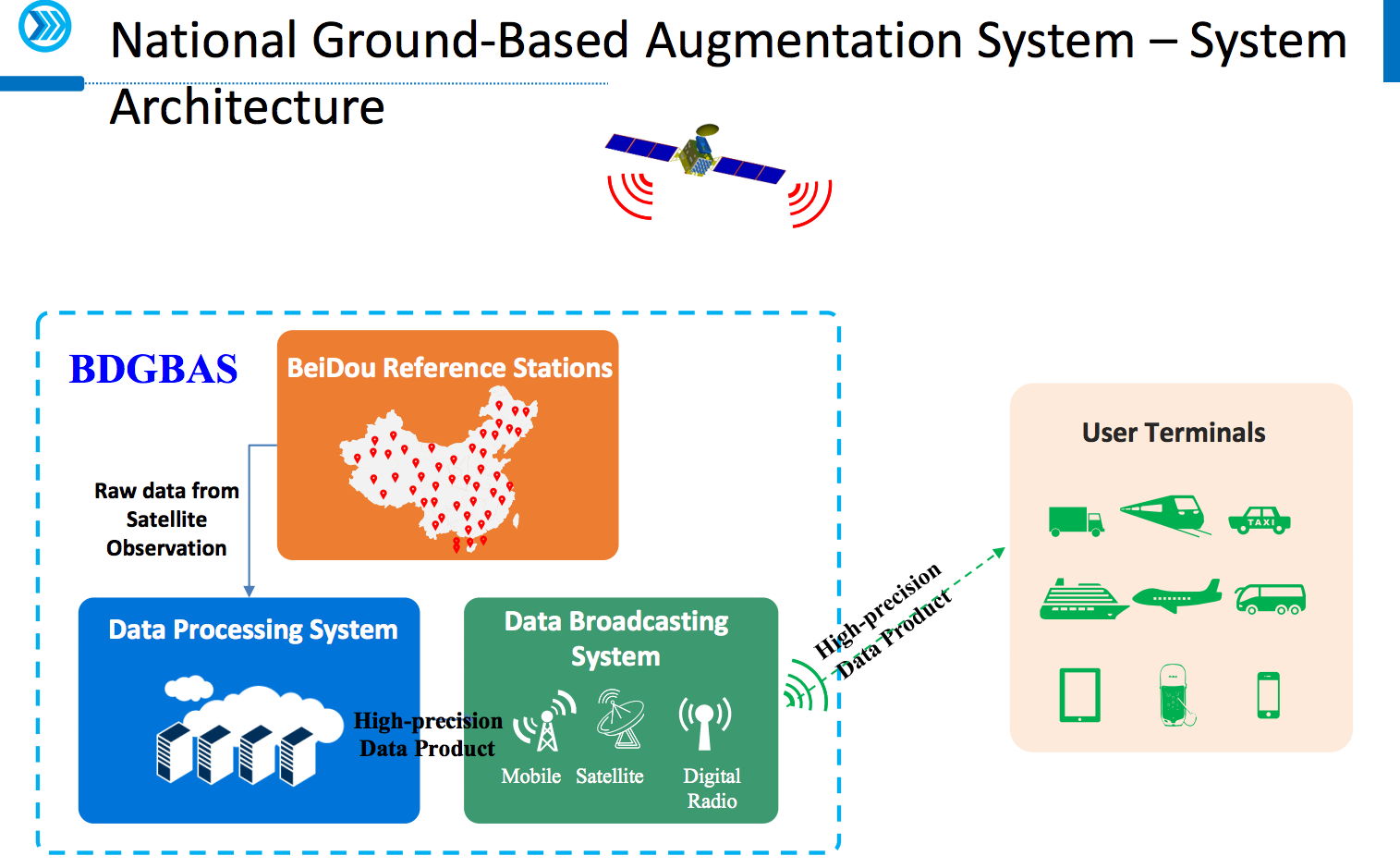In 2016, the system performance was being tested, including meter and decimeter level for widearea real-time services, centimeter level for the
areas within Beijing, millimeter level for postprocessing services.
When the system is operational, it will provide meter and decimeter level real-time location services for users in China, even centimeter level service in some areas.
BDS-based high-precision applications, such as the lane level vehicle navigation service, could be realized.
150 national wide-area reference stations (RSs), 1200 regional Reference stations
• National BeiDou Data Integrated Processing System, Data Backup System, 6 kinds of Industrial Data Processing Systems
• 3 broadcasting paths: Mobile Communication, Satellite Broadcasting, Digital Radio
• 4 kinds of high-precision positioning services: wide-area real-time meter level and decimeter level, regional real-time centimeter level, post-processing millimeter level
Development Plan as of 2016
* 2014: Evaluation of BDS augmentation performance.
* 2014-2015: Participate in dual frequency multi-constellation SBAS standard establishment through ICAO, IWG etc.
* 2018 2017 : Launch the first BDSBAS GEO satellites.
* 2020: Finish the launch of 3 GEOs. Start to provide dual frequency multi-constellation SBAS service for China and surrounding areas users.
* 2025: Provide augmentation services for users in larger areas through international cooperation.
China’s new GPS system will go global in 2020.
China has built more than 1,500 Beidou ground stations across the country to improve the system’s accuracy. It also plans to set up similar bases in dozens of countries including Pakistan and Thailand to extend the high-precision service to military and government users overseas.


Unicore Communications, a company producing Beidou chipsets for positioning devices in Beijing, said their latest products included support for the newest Beidou satellites.
“The satellites have just been launched. They still need some time for testing and calibration before we can evaluate their actual performance,” a Unicore product manager said.
He expected most smartphones to have a chip to receive Beidou signals in the near future.

Brian Wang is a Futurist Thought Leader and a popular Science blogger with 1 million readers per month. His blog Nextbigfuture.com is ranked #1 Science News Blog. It covers many disruptive technology and trends including Space, Robotics, Artificial Intelligence, Medicine, Anti-aging Biotechnology, and Nanotechnology.
Known for identifying cutting edge technologies, he is currently a Co-Founder of a startup and fundraiser for high potential early-stage companies. He is the Head of Research for Allocations for deep technology investments and an Angel Investor at Space Angels.
A frequent speaker at corporations, he has been a TEDx speaker, a Singularity University speaker and guest at numerous interviews for radio and podcasts. He is open to public speaking and advising engagements.


Why? A solution in search of a problem, I think. GoatGuy
Road construction is an existing problem. Current solution is contractors have their own base stations on site that they move around. And, mm accuracy is important for GPS controlled dozers/graders that finish the base layer and pavers that lay the ashpalt. Debatable whether this is more economical.